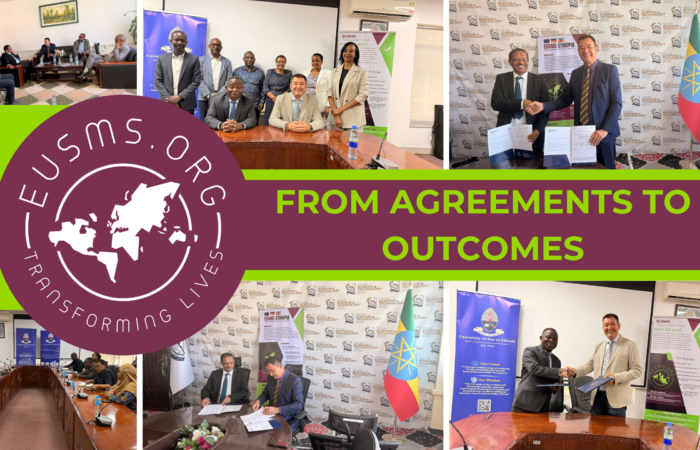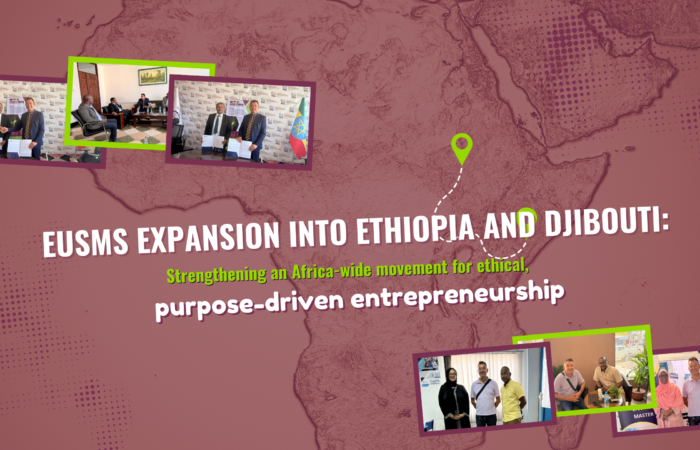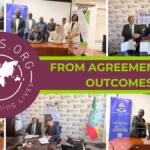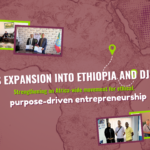The Calm Eye in a Global Economic Storm
The world economy is shifting faster than many entrepreneurs can adapt.
Inflation rates remain stubbornly high in several African countries, currencies fluctuate unpredictably, and global supply chain disruptions continue to ripple through markets.
In times like these, entrepreneurs often find themselves reacting to every wave of change; sometimes with panic, sometimes with over-correction.
Yet, history shows that some founders not only survive turbulent times; they thrive.
The difference often lies in mindset. One timeless approach that has been gaining attention among business leaders is Stoicism, a philosophy that teaches the art of focusing on what you can control, letting go of what you cannot, and approaching challenges with calm, deliberate action.
At EUSMS, we believe that resilience isn’t just about resources; it’s about how you think, decide, and lead.
In this article, we’ll explore how Stoic principles can help entrepreneurs in Africa and beyond remain steady in uncertain economic waters, turning challenges into opportunities for growth.
The Economic Reality: Why Resilience Matters Now
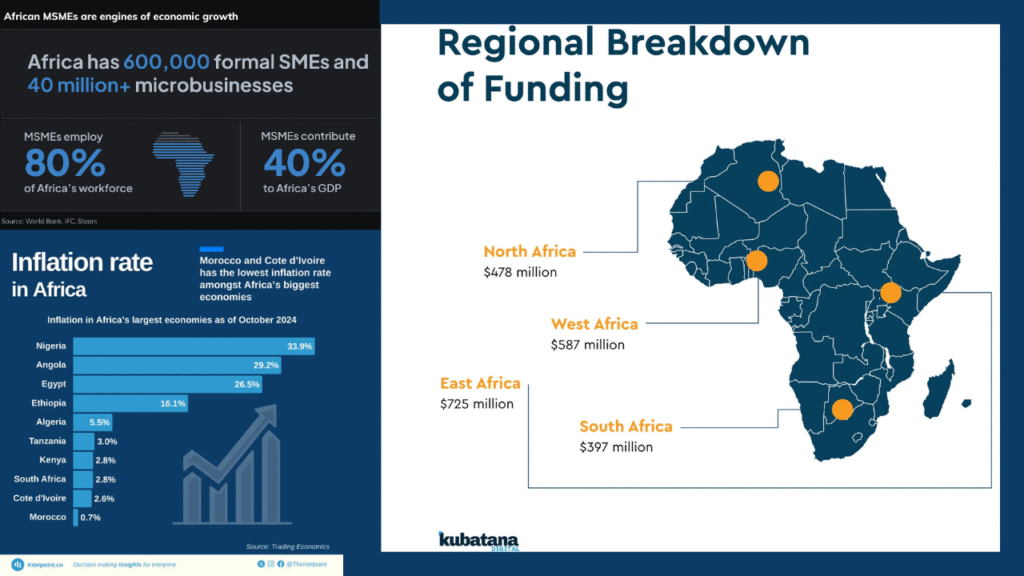
Across Africa, small and medium-sized enterprises (SMEs) are the backbone of economic activity; employing over 80% of the workforce in some countries. Yet these businesses are often the most vulnerable when the economy slows.
High Inflation: In 2024, several African nations saw inflation rates over 15%, squeezing profit margins.
Funding Challenges: Global investors are becoming more cautious, and access to affordable credit remains limited.
Market Volatility: Shifts in commodity prices and exchange rates can make business planning feel like guesswork.
In this environment, emotional stability, critical thinking, and adaptability aren’t just leadership “extras”; they’re survival tools.
What Stoicism Teaches Entrepreneurs
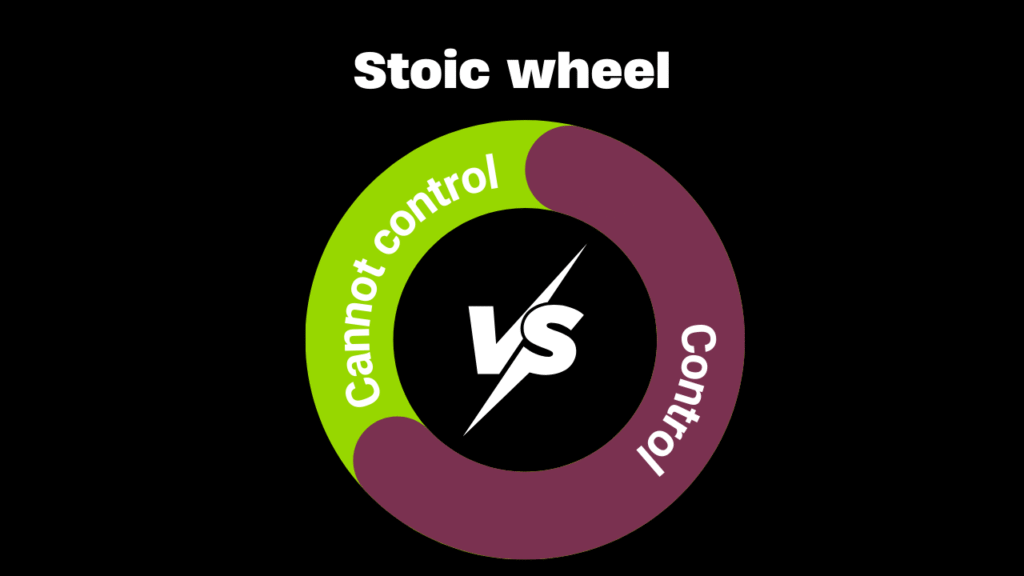
Stoicism is not about suppressing emotions or being detached from reality. Instead, it’s about mastering your mindset so that external chaos doesn’t dictate your internal state; or your decision-making.
Key Stoic principles relevant to entrepreneurs include:
Control the Controllables – Focus your time and energy on what you can influence, rather than wasting energy worrying about the rest.
Accept Uncertainty as Normal – Markets rise and fall; change is the only constant. Planning for volatility is smarter than wishing it away.
Reframe Challenges as Opportunities – Stoics believe obstacles are the path, not the problem. Business setbacks can spark innovation.
Practice Emotional Discipline – Leadership demands calm decision-making, especially when others panic.
How African Entrepreneurs Can Apply Stoicism
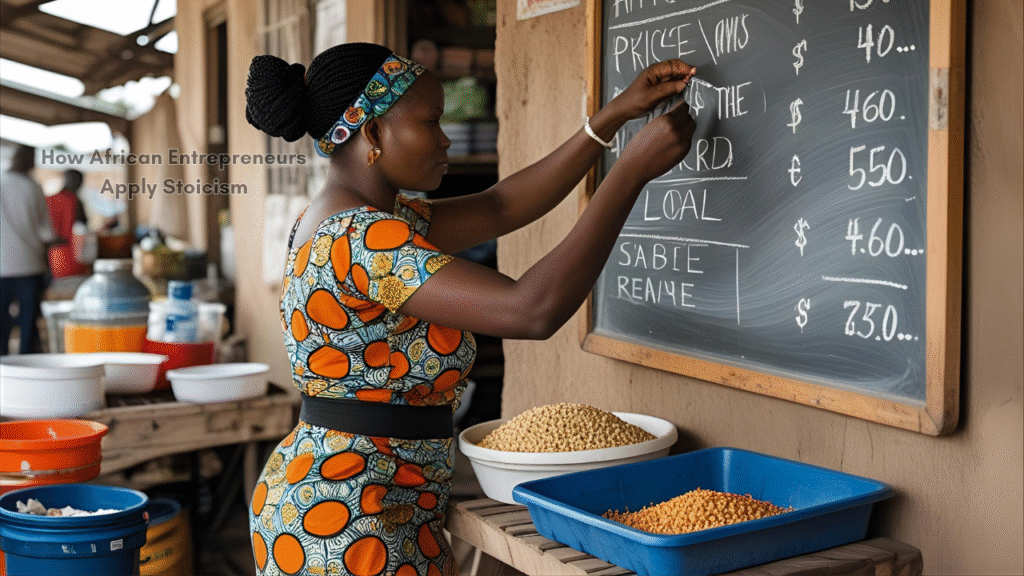
- Start Every Day With a Strategic Check-In
Ask yourself: What is within my control today? This could be improving a marketing campaign, negotiating with suppliers, or innovating your product; rather than stressing over interest rates or political changes.
- Build a Flexible Business Model
Stoicism pairs well with agility. For instance, a Nairobi-based fashion entrepreneur facing supply chain delays might source materials locally instead of waiting for imports.
- Adopt the “Obstacle is the Way” Mindset
When COVID-19 hit, some restaurant owners in Kenya pivoted to food delivery and online cooking classes. The setback forced innovation that opened entirely new revenue streams.
- Maintain a Calm Public Presence
Your team, customers, and investors take cues from your tone. A founder who communicates stability inspires confidence; critical when market fear is high.
EUSMS and the Stoic Entrepreneur
EUSMS’s mission to empower entrepreneurs through mindset mastery aligns perfectly with Stoic principles. Our programs equip founders with:
Decision-making frameworks that separate controllable from uncontrollable factors.
Mindfulness and stress management tools that keep leaders grounded.
Ethical leadership training to ensure resilience is paired with integrity.
By blending Stoicism with practical business skills, we help entrepreneurs turn philosophy into profit and purpose.
Case Study: Stoicism in Action

Meet Aisha, a 29-year-old agritech founder in Tanzania. When fertilizer prices skyrocketed in 2023 due to global supply disruptions, many farms in her network were at risk of closing. Instead of panicking, Aisha applied a Stoic lens: she couldn’t control global prices, but she could control her sourcing strategy. She shifted to locally produced organic fertilizers, started farmer training sessions on low-cost soil enrichment, and partnered with local NGOs to distribute resources.
Not only did her business survive the crisis; it gained a reputation for innovation and sustainability, attracting new funding from impact investors.
Practical Stoic Strategies for Entrepreneurs
Daily Reflection: End your day by writing down what you handled well and what you will approach differently tomorrow.
Crisis Rehearsals: Imagine worst-case scenarios and plan responses ahead of time. This makes real crises less overwhelming.
The “Pause” Rule: When faced with bad news, take 24 hours before making major business decisions.
Customer-Centered Innovation: Use problems as prompts to improve your product or service in a way that directly benefits your clients.
A Calm Mind Builds Stronger Businesses

Economic uncertainty is not going away anytime soon. But for entrepreneurs who adopt Stoic principles, these challenges can become the forge that strengthens their leadership, clarifies their focus, and fuels innovation.
At EUSMS, we believe the entrepreneurs who will define the next decade are not the ones who avoid storms; they’re the ones who sail through them with steady hands and unshakable purpose.
Your business doesn’t just need resources; it needs resilience. And resilience starts in the mind.
Learn more about EUSMS : www.eusms.org
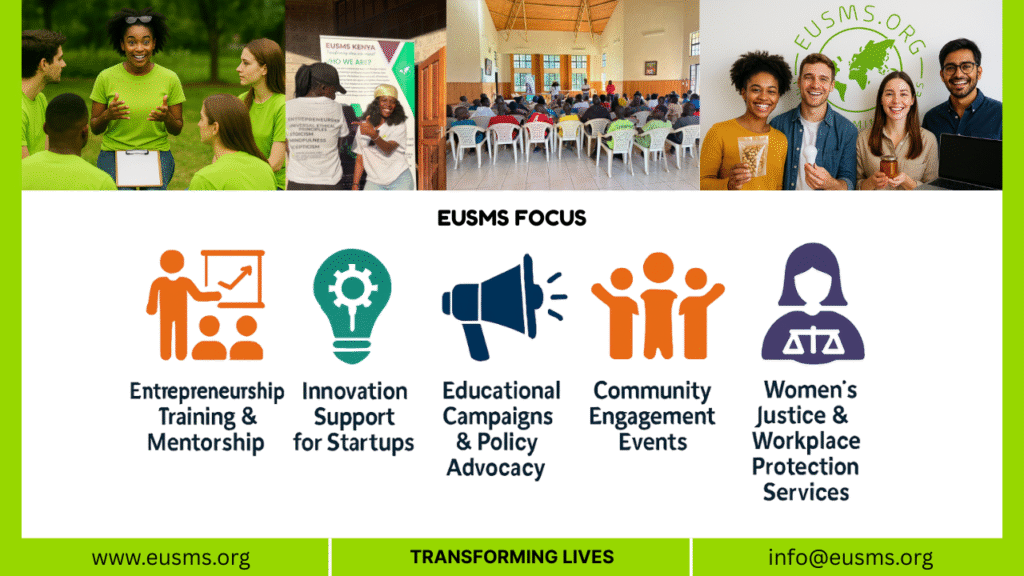
Author: Dorothy Kwamboka

